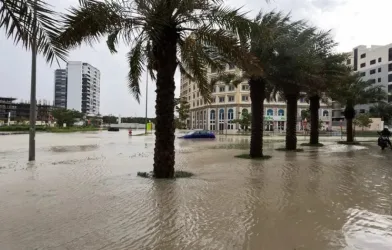 The issue of health and well-being sadly comes along way down the list of priorities for governments and people in the Horn of Africa. For many people merely surviving from day to day is the top priority and this means endeavouring to find the bare essentials of life, namely food, shelter, fuel and the means to scratch a living. The old adage: Health is Wealth, still holds true. The healthier a nation the greater the potential it has to become more productive, prosperous and hopefully more content.
The issue of health and well-being sadly comes along way down the list of priorities for governments and people in the Horn of Africa. For many people merely surviving from day to day is the top priority and this means endeavouring to find the bare essentials of life, namely food, shelter, fuel and the means to scratch a living. The old adage: Health is Wealth, still holds true. The healthier a nation the greater the potential it has to become more productive, prosperous and hopefully more content.
Across the entire region whilst there have been some successes, access to health care remains inadequate. Facilities and resources such as they are overstretched, poorly managed and invariably lack the trained staff required for the increasing populations they are meant to serve. There are a few remarkable exceptions such as Addis Ababa Fistula Hospital (www.hamlinfistula.org) and the Edna Adan University Hospital (www.ednahospital.org), but even these institutions are put under unnecessary strain due to the cultural tyranny of female genital mutilation (FGM). Access to healthcare in rural areas is near non-existent and everyday unnecessary suffering and death stalks the region. When it comes to vaccinations programmes for the likes of measles some regional governments seem quite content to abdicate their responsibility to their citizens and leave matters to the likes of UNICEF or various NGOs. At a national level budgetary allocations remain woefully inadequate, with not a single government really prepared to put its money where its mouth is. The move to urban living has resulted in a few improvements, but with increased regional movement and urbanisation medical professionals have noted an increase in the following:
- Depression & Mental Illness
- Smoking related diseases
- Tuberculosis
- Sexuality Transmitted Infections (STIs)
The issue of STIs is one that raises questions about education and morality. Such is the taboo concerning HIV and AIDS that illness and resulting deaths often deliberately wrongly attributed by medical professional in order to safe a family’s ‘good name’. In the case of health related matters ignorance is not bliss and thus various stakeholders need to work together to formulate ways of minimizing risk, helping people make informed choices preferably in a moral framework.
One of the downsides of modern life is a reduction in exercise (particularly walking) due to our reliance on cars, buses, taxis etc. This coupled with an increase in consumption of convenience/fast foods that are rich in saturated fats, sugars, salt and countless preservatives has resulted in a marked increase in obesity levels nationally. The attendant illnesses such as diabetes, heart conditions, strokes etc are taking their toll and thus it is time for a concerted effort to reverse this disturbing trend. Malaria and water borne disease continue to blight and cut short lives. Water, sanitation and hygiene or WASH as it is known amongst the NGO-wallahs is an area that every government, municipality and community needs to make a top priority. There are innovative solutions out there, one of the most original and surely the most aesthetically pleasing being the Warka Water Tower designed by Architecture & Vision (www.architectureandvision.com).
Refugee and migrant communities find themselves doubly vulnerable and with far fewer options. In common with those in zones of dispute and conflict they suffer from far higher rates of malnutrition and due to extreme poverty, location or lack of choice are more likely to fall victim to unscrupulous peddlers of fake or adulterated pharmaceuticals. There is anecdotal evidence that the Horn of Africa is awash with fake drugs and currently it would appear that none of the regional governments are prepared to take on the powerful forces behind such a pernicious and hateful trade in deceit, suffering and death. It has become something of a reflex action to downplay the problem or to claim that directly or indirectly the real cause of the problem is the Western pharmaceutical giants. Such sophistry is an insult to the citizens who are being so poorly served.
Providing adequate health care is indeed a monumental challenge, one made all the more difficult by the dearth of reliable data and an absence of a coherent and coordinated approach. With transient populations, changing demographics and signs of growing connectivity, maybe there needs to be a fresh approach. Slowly nations have woken up to the importance of connected infrastructure systems, well in the same way greater collaboration on healthcare might well be the way forward. No one should underestimate the challenges such an approach would bring; differences in training, regulation, language and mindset are just some of the issues that would need to be surmounted and then of course there are the legacy issues concerning regional rivalries, continuing disputes over border regions and mutual suspicion. Exchanges could be made, expertise shared and strategies formulated, but in order for this to happen pragmatism has to triumph over dogma, petty self interest and pride. These things take time and for such an approach to take place, some of the politics of health provision needs to be removed. It is a sad reality that even within countries some provinces are being deliberately starved of resources as a means of bringing them to heal or merely because certain parties, clans or narrow minded individuals are in the position so to do. When viewed in this light one can quite understand why some individuals have sought sanctuary and relative safety elsewhere.
Whilst in comparison most members of the regional Diaspora live in countries with advanced systems of social care, they have their own problems often made worse by educational and linguistic barriers. Cultural isolation, post-traumatic stress and depression are all fairly frequently manifested by sizeable numbers of the Diaspora. For some members of the Horn Diaspora in the UK the 24th June 2014 will bring about additional stress, for from this date khat, the herbal stimulant is to be banned on health grounds (khat is already banned in most of Europe and in a number of other countries, including Canada and the US).
When it comes to the issue of health and healthcare there is invariably no quick fix. Across the Horn of Africa there is an urgent need for a more coordinated approach, one that sees greater emphasis on health prevention measures and a concerted effort to prevent the brain drain of health professionals. Progress in other sectors in the region tells us that where there is a will there is a way. Planning, policies and the right personnel can achieve remarkable things. Equally additional funding allocations will be essential and for all the budgetary constraints it is worth noting that considerable sums are still being found for defence equipment, vast fleets of ministerial 4×4 vehicles and innumerable flights to and from Dubai, London, Istanbul and Beijing. Ultimately it is all a matter of priorities.
Mark T Jones
(International Speaker & Leadership Specialist)
http://www.marktjones.com







